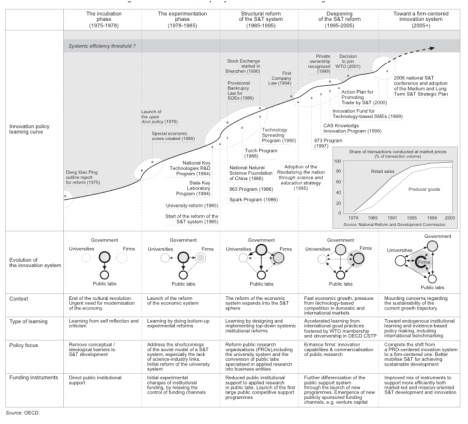National Intelligence Director James Clapper testifies on Capitol Hill in Washington, Thursday, April 11, 2013, before the House Intelligence Committee hearing on worldwide threats. (AP Photo/Manuel Balce Ceneta)
National Intelligence Director James Clapper testifies on Capitol Hill in Washington, Thursday, April 11, 2013, before the House Intelligence Committee hearing on worldwide threats. (AP Photo/Manuel Balce Ceneta)
National Intelligence Director James Clapper, left, and CIA Director John Brennan testify on Capitol Hill in Washington, Thursday, April 11, 2013, before the House Intelligence Committee hearing on worldwide threats. (AP Photo/Manuel Balce Ceneta)
Department of Defense's Defense Intelligence Agency Director, Lt. Gen. Michael Flynn testifies on Capitol Hill in Washington, Thursday, April 11, 2013, before the House Intelligence Committee hearing on worldwide threats. (AP Photo/Manuel Balce Ceneta)
FBI Director Robert Mueller listens on Capitol Hill in Washington, Thursday, April 11, 2013, during the House Intelligence Committee hearing on worldwide threats. Mueller was among intelligence agency heads who testified before the committee. (AP Photo/Manuel Balce Ceneta)
CIA Director John Brennan testifies on Capitol Hill in Washington, Thursday, April 11, 2013, before the House Intelligence Committee hearing on worldwide threats. (AP Photo/Manuel Balce Ceneta)
WASHINGTON (AP) ? A U.S. intelligence report concludes that North Korea has advanced its nuclear knowhow to the point that it could arm a ballistic missile with a nuclear warhead, a jarring revelation in the midst of bellicose threats from the unpredictable communist regime.
President Barack Obama urged calm, calling on Pyongyang to end its saber-rattling while sternly warning that he would "take all necessary steps" to protect American citizens.
The new American intelligence analysis, disclosed Thursday at a hearing on Capitol Hill, says the Pentagon's intelligence wing has "moderate confidence" that North Korea has nuclear weapons capable of delivery by ballistic missiles but that the weapon was unreliable.
Rep. Doug Lamborn, R-Colo., read aloud what he said was an unclassified paragraph from a secret Defense Intelligence Agency report that was supplied to some members of Congress. The reading seemed to take Gen. Martin Dempsey, chairman of the Joint Chiefs of Staff, by surprise, who said he hadn't seen the report and declined to answer questions about it.
In a statement late Thursday, Pentagon press secretary George Little said: "While I cannot speak to all the details of a report that is classified in its entirety, it would be inaccurate to suggest that the North Korean regime has fully tested, developed or demonstrated the kinds of nuclear capabilities referenced" in Lamborn's remarks.
'"The United States continues to closely monitor the North Korean nuclear program and calls upon North Korea to honor its international obligations," Little added.
The DIA conclusion was confirmed by a senior congressional aide who spoke on condition of anonymity because the Pentagon had not officially released the contents. The aide said the report was produced in March.
Since the beginning of March, the Navy has moved two missile defense ships closer to the coast of the Korean peninsula, in part to protect against a potential missile launch aimed at Guam, a U.S. territory in the Pacific. The Pentagon also has announced it will place a more advanced land-based missile defense on Guam, and Hagel said in March that he approved installing 14 additional missile interceptors in Alaska to bolster a portion of the missile defense network that is designed to protect all of U.S. territory.
On Thursday, the Pentagon said it had moved a sea-based X-band radar ? designed to track warheads in flight ? into position in the Pacific.
Notably absent from that unclassified segment of the report was any reference to what the DIA believes is the range of a missile North Korea could arm with a nuclear warhead. Much of its missile arsenal is capable of reaching South Korea and Japan, but Kim has threatened to attack the United States as well.
At the House Armed Services Committee hearing in which he revealed the DIA assessment, Lamborn asked Dempsey, whether he agreed with it. Dempsey said he had not seen the report.
"You said it's not publicly released, so I choose not to comment on it," Dempsey said.
But David Wright, a nuclear weapons expert at the Union of Concerned Scientists, said the DIA assessment probably does not change the views of those who closely follow developments in North Korea's pursuit of a nuclear weapon.
"People are starting to believe North Korea very likely has the capability to build a nuclear weapon small enough to put on some of their shorter-range missiles," Wright said. "Once you start talking about warheads small enough and technically capable to be on a long-range missile, I think it's much more an open question."
The DIA assessment is not out of line with comments Dempsey made Wednesday when he was asked at a Pentagon news conference whether North Korea was capable of pairing a nuclear warhead to a ballistic missile that could reach Japan or beyond.
In response, Dempsey said the extent of North Korean progress on designing a nuclear weapon small enough to operate as a missile warhead was a classified matter. But he did not rule out that the North has achieved the capability revealed in the DIA report.
"They have conducted two nuclear tests," Dempsey told a Pentagon news conference. "They have conducted several successful ballistic missile launches. And in the absence of concrete evidence to the contrary, we have to assume the worst case, and that's why we're postured as we are today." He was referring to recent moves by the U.S. to increase its missile defense capabilities in the Pacific.
At the same House hearing where Lamborn revealed the DIA conclusion, Defense Secretary Chuck Hagel was asked a different version of the same question: Does North Korea have the capability to strike U.S. territory with a nuclear weapon? Hagel said the answer is no.
"Now does that mean that they won't have it or they can't have it or they're not working on it?" Hagel added. "No. That's why this is a very dangerous situation."
"Now is the time for North Korea to end the belligerent approach they have taken and to try to lower temperatures," Obama said in his first public comments since Pyongyang threatened the United States and its allies in East Asia with nuclear attack.
Obama, speaking from the Oval Office, said he preferred to see the tensions on the peninsula resolved through diplomatic means, but added that "the United States will take all necessary steps to protect its people."
The North on Thursday delivered a fresh round of war rhetoric with claims it has "powerful striking means" on standby, the latest in a torrent of warlike threats seen by outsiders as an effort to scare and pressure South Korea and the U.S. into changing their North Korea policies.
Lamborn is a member of the Strategic Forces subcommittee of the Armed Services panel, which oversees ballistic missiles. A former state legislator who was elected to the House in 2006, was a member of the Tea Party caucus and belongs to the Republican Study Committee, the caucus of House conservatives
At a separate hearing Thursday, U.S. officials offered their assessment of the North Korean leader, who is a grandson of the country's founder, Kim Il Sung.
Director of National Intelligence James Clapper told the House Intelligence Committee that he thinks Kim, who took control after his father, Kim Jong Il, died in 2011, is trying to show the U.S., the world and his own people that he is "firmly in control in North Korea," while attempting to maneuver the international community into concessions in future negotiations.
"I don't think ... he has much of an endgame other than to somehow elicit recognition" and to turn the nuclear threat into "negotiation and to accommodation and presumably for aid," Clapper said.
Clapper said that the intelligence community believes the North would use nuclear weapons only to preserve the Kim regime but that analysts do not know how the regime defines that.
Secretary of State John Kerry was headed Thursday to East Asia, where he planned talks with officials in Seoul, Beijing and Tokyo about North Korea.
___
Associated Press writers Kimberly Dozier, Sagar Meghani and Donna Cassata contributed to this report.
___
Follow Robert Burns at http://www.twitter.com/robertburnsAP and Julie Pace at http://www.twitter.com/jpaceDC
Associated PressSource: http://hosted2.ap.org/APDEFAULT/3d281c11a96b4ad082fe88aa0db04305/Article_2013-04-11-US-Intelligence-Threats-North-Korea/id-498e4af78f6d4f55a86e1accaf50df85
Denny Hamlin My Chemical Romance amanda bynes Olympus Has Fallen Arnold Palmer Invitational 2013 arnold palmer invitational Chinua Achebe


 ???
???















